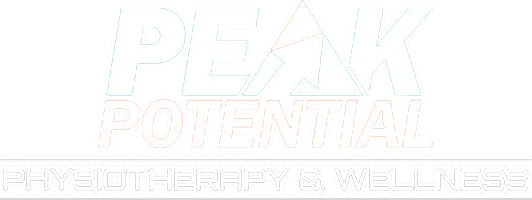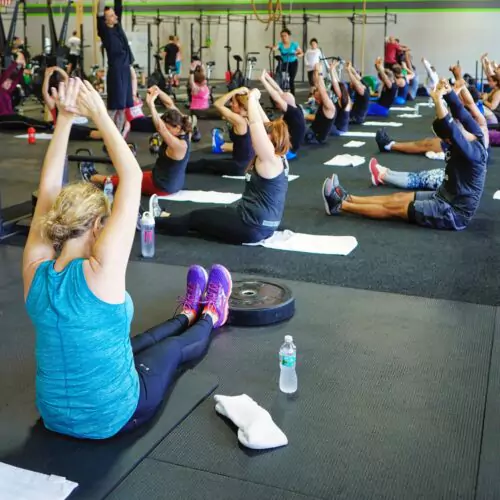The 60-billion-dollar diet industry puts a lot of money behind their messaging to tell us to “eat this to perform better”, “never eat that if you want to be fit”, or “this one super food will change your body forever”.
It’s a culture interested in the lasted fad and finding that one thing that will make us all strong and lean over night. The fact is that it is not one thing that will build muscle, burn fat, make you faster, stronger, and perform at your best. It takes a combination of daily nutrition habits that are customized to your body and your goals. That being said, I can’t give you a blueprint here for what is should or should not be eating optimize your performance.
However, there are certain nutrition myths that many of us believe that could be holding you back on your fitness journey or limiting your performance as an athlete. Here are the 5 myths about nutrition that I see most often with friends and clients:
Myth 1: Bars and Pouches Are the Best Way to Fuel A Workout
Athletes (or moms on the go) often rely on bars and pouches of goo to get them through a race (or through the day). Next time you reach into your gym bag for a bar, flip it over and look at the ingredients. The added preservatives, sweeteners, and emulsifiers used to make that palatable are hard for your body to digest and to actually break down to use as nutrition for your body.
I understand that we are all busy and sometimes convenience trumps our fitness goals. However when it comes to fueling your body, recovering from training, or improving yourself athletically, a whole foods diet is undeniably at the top of the list. Your body knows what to do with fruits, veggies, eggs, meat, fish, nuts, and seeds – these will always be your ideal fuel choices.
Myth 2: A Big Meal Before My Workout Is Ideal
I know I just said that whole foods are always best, but there is one thing you need to take into account. The food you eat 60 to 90 minutes before your training will likely still be making it’s way through your digestive system and not yet absorbed into your bloodstream.In fact, high fiber whole foods are even slower to digest and may make you feel weighted down or bloated.
Although whole foods are always best to nourish your body and will help your body recover later, but not help your workout performance. When you want to perform optimally or at an intense level, a protein shake may be your best resource to fuel your muscles without intestinal distress.
Myth 3: Cutting Calories is the Key to Reaching My Goals.
Often times a fitness goal goes hand in hand with a weight loss goal and the strategy is to reduce calories. But when calories are scarce the body prioritizes essential functions (like breathing and temperature regulation) and there won’t be anything left over for muscle building or speed training.
In addition, under eating can sabotage your body’s recovery. Nutrients are needed – especially protein – to rebuild muscle that is broken down during training. This doesn’t mean that you should over eat though. You must find the right amount of calories and ratio of proteins, carbohydrates, and fats that work for your body.
Myth 4: Carb Loading is Essential to Athleticism
You may have heard of essential proteins called amino acids or essential fatty acids, but there is no essential carbohydrate. In fact, your body is able to use amino acids and fatty acids to make glucose (which is what carbohydrates break down into). Therefore, carb loading may not be a necessary for performance as we once thought in the fitness world.
However, since carbohydrates are stored in muscle tissues and are broken down during exercise to create energy a lack of carbohydrates may make you feel weak or less able to give 100% in your workout. If you have chosen a very low carbohydrate diet for other health purposes, do not fear. Without carbohydrates, your body can modify it’s energy source and use fat as fuel instead, but you may have to give your body some time to adjust. Again, you will have to experiment with the amount of carbohydrates that work best for you pre or post workout. The issue here is not carbs or no carbs it’s really the excessive amount of carbohydrates many athletes consume for the sake of improving performance.
Myth 5: All Protein is Created Equally
Protein may be the most important macronutrient to get right when you are looking to improve strength, reach an ideal body composition, or beat a PR. It’s actually found in a wide variety of foods, but the amount and quality is not always the same. Protein quality is based on the amino acids that are present in the food and how well the body can digest and utlize them in the body. Complete proteins (that contain all the essential amino acids) are best and found in animal sources and vegetarian sources like pea or hemp.
These are important because they stimulate muscle protein synthesis (which is want you want to look lean or gain strength). Getting enough protein in your day is important to facilitate this process – and the mistake I see most in women I work with. So, how much do you need? Sorry, but I’ll have to say again that it depends on your body composition (how much fat versus muscle you have in your body now) and what your goals are. Work with an expert to find what’s right for you.
Did any of these myths sound familiar to you?
Unfortunately, they are still being touted in health and fitness magazines which makes sorting out fact from fiction very difficult. If you are interested in finding your perfect nutrition strategy to help you reach your fitness, body composition, and athletic goals, sign up for our next FREE Nutrition Workshop where you will learn Performance Nutrition 101 and walk away with an individualized game plan in less than an hour. Click the link below to be notified of our next workshop:


